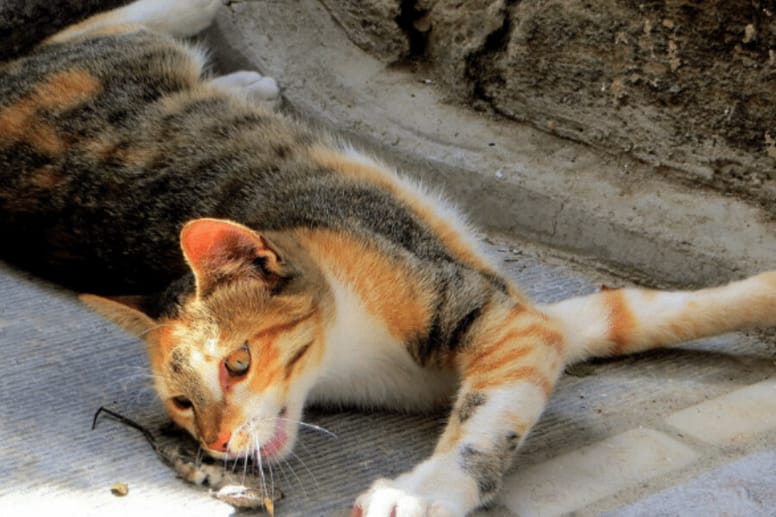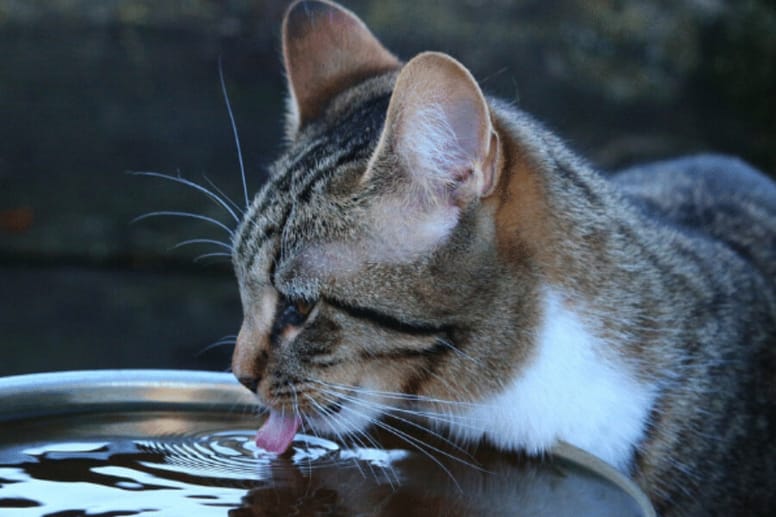What exactly is cat diarrhoea?
Once the cat has eaten and digested food, it should take a normal time to pass through the intestine and be expelled as faeces. However, if the ingested material passes quite rapidly through the cat’s intestine, this is normally referred to as diarrhoea. This is certainly the case if the cat does a large number of loose poops, or has an increased number of bowel movements.
The causes of cat diarrhoea
Most felines don’t routinely suffer from diarrhoea, at least when they’re not ill, that is. When it does appear, it’s probably the result of a digestive issue or an internal problem. If it just lasts for a short period and then clears up without treatment, it’s most likely caused by something the cat has drunk or eaten. Because some owners offer their cats cow’s milk or milk and water mixed, this can lead to a tummy upset. It is possible to purchase specially formulated milk for cats at the pet store.

Likewise, a bacterial or viral infection can cause cat diarrhoea. If your cat is also vomiting she probably has an infection of some sort. Dehydration and weight loss can very quickly make your cat rather ill. IBD or Irritable Bowel Disease has very similar symptoms. Chronic diarrhoea will often be a symptom and medical intervention is needed in these cases.
Symptoms of cat diarrhoea
First of all, if your cat has had diarrhoea for quite some time, she will not only be losing a lot of fluid but also important salts and minerals vital to her health. She might require a medical assessment and diagnosis if the condition is quite critical. Look out for the following symptoms of ongoing diarrhoea problems and if necessary seek feline medical advice:
- Stools that are black or tar-like or blood in the faeces
- If your cat has eaten something poisonous or toxic
- Severe dehydration, depression or fever
- Yellow or very pale gums
- Signs of any pain
- Cat is vomiting

Diagnosis of cat diarrhoea
If you seek medical intervention, your cat will probably have some faecal analysis or blood tests to check for internal parasites, for which she will be prescribed medication. In acute and chronic diarrhoea diagnoses, a radiograph or endoscopy could be needed. You will be advised how soon you should notice an improvement in the cat’s health and disposition.
Treatment for a cat with diarrhoea
How best to help a cat with diarrhoea? If the cat has a one-off episode of diarrhoea and you can link it to a recent change in diet, this could be the cause. Offer your cat the old type of diet and her stools should return to normal after a day or so. Even more important is to introduce the new food type gradually, a small amount at a time.
Add probiotics to your cat’s food for diarrhoea treatment. These probiotics introduce good bugs back into the intestines. It seems like a good option to rebalance the cat’s gastrointestinal system that isn’t operating correctly just now.
In addition, offer a bland type of food such as rice and boiled chicken, only in small quantities at first. As a result of an improvement, you can then gradually introduce the cat back to her normal diet if the diarrhoea doesn’t re-occur.
Give the cat plenty of water

It’s very easy for a cat to become dehydrated when suffering from diarrhoea. Offer her plenty of fresh drinking water. Consider changing her diet to a canned variety for a short while to increase her intake of liquids.
Medication to treat cat diarrhoea
Only give diarrhoea tablets for cats as prescribed by the Vet. Never use medication prescribed for human use on your pet. If parasites are present in the stools, an appropriate treatment will eradicate this problem.
Cat diarrhoea is a symptom of various diseases rather than a disease itself. It is imperative, in the first place, to pinpoint the exact cause of the problem. Treatment can then begin to improve the cat’s health and to prevent any future diarrhoea episodes in the future.
To eliminate any future occurrences, ensure that your cat’s litter box is cleaned frequently. Sweep and mop the floor around the location of your kitty’s feeding and drinking bowls. Similarly, always provide fresh food and water. These steps can keep away bacteria, viruses and parasites that can cause this nasty health condition.
At the end of the day, your cat’s health is of the utmost importance.



